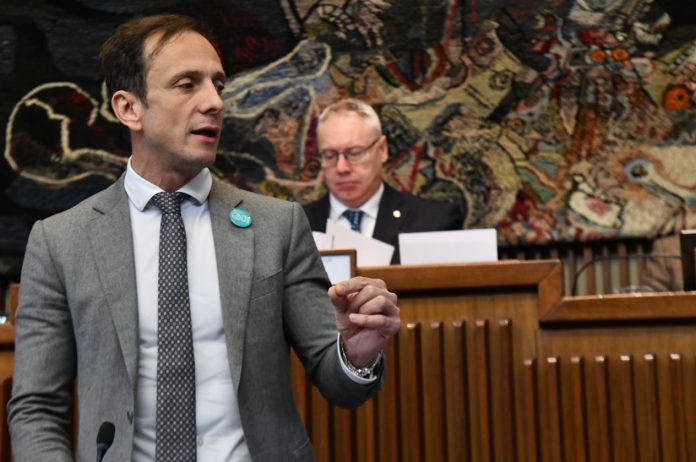by InTrieste
Massimiliano Fedriga, governor of Friuli Venezia Giulia, indicated on Thursday that efforts are underway to heal divisions within the region’s center-right ruling coalition. His comments followed a meeting with Prime Minister Giorgia Meloni at Palazzo Chigi, as reported by La Repubblica.
“The will is there—both mine and President Meloni’s,” Fedriga said when asked whether the rift within the regional majority could be resolved. “Now the goal is to relaunch the work of the regional administration, which I believe has been widely appreciated by citizens in recent years, during a period of significant growth for the region.”
Fedriga said he intends to call a majority meeting “in the coming hours” to work toward a solution aimed at restoring cohesion within the coalition, which includes his own list, the League, and Forza Italia. He did not discuss the contentious issue of term limits during his meeting with the prime minister, noting only that the topic was not brought up.
The recent government crisis in Friuli Venezia Giulia stemmed from escalating tensions among coalition members. The dispute came to a head when regional ministers from the League, Forza Italia, and Fedriga’s civic list handed back their delegations after criticism from Brothers of Italy (FdI) minister Luca Ciriani. Ciriani accused the regional government of delays in opening a new hospital in Pordenone.
Despite the political turmoil, Fedriga highlighted progress on national health reforms. He announced an agreement on a long-awaited decree aimed at reducing hospital waiting lists, a key issue in Italy’s healthcare debate.
“The agreement ensures that substitute powers must be activated according to clear parameters, and just as clearly deactivated once those parameters are met,” Fedriga explained. “Regions do not want to find themselves, as in the case of budget deficits, with commissioners who remain in place for decades without resolving the issues.”
Fedriga also said he is scheduled to meet Health Minister Orazio Schillaci next week to finalize the technical details of the decree.
The developments mark a tentative step toward stability in one of Italy’s most economically dynamic regions, even as political fractures remain just below the surface.





























